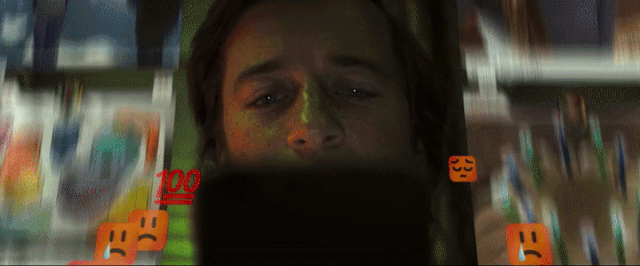# Unabomber's Insights on Technology: Are They Valid Today?
Written on
Chapter 1: The Unabomber’s Legacy
For those unfamiliar with the history of domestic terrorism, the Unabomber was a significant figure during his time. Over 17 years, he mailed bombs to various targets in the tech, media, and advertising sectors, resulting in three deaths and 23 injuries. The search for the Unabomber, later identified as Harvard-educated Ted Kaczynski, became the FBI's longest and costliest manhunt.
Why revisit this troubling individual? Before his capture in 1996, Kaczynski published a manifesto that eerily forecasts the society we live in today, drawing comparisons to classics like 1984 and Brave New World.
“The Unabomber Manifesto is a carefully reasoned, artfully written paper… If it is the work of a madman, then the writings of many political philosophers — Jean Jacques Rousseau, Tom Paine, Karl Marx — are scarcely more sane.” — UCLA professor James Q. Wilson
While I do not endorse Kaczynski’s heinous actions, his high intellect allowed him to perceive trends in technology and media that many overlook. Here are some of his most significant assertions:
Section 1.1: A Society Out of Touch with Its Origins
Kaczynski argued that contemporary society demands individuals to adapt to conditions vastly different from those in which humanity evolved. He described features of modern industrial life, such as dense populations, disconnection from nature, rapid social changes, and the erosion of traditional communities, as fundamentally abnormal.
> “Among the abnormal conditions present in modern industrial society are excessive density of population, isolation of man from nature, excessive rapidity of social change and the breakdown of natural small-scale communities such as the extended family, the village or the tribe.” — Ted Kaczynski
He proposed that an over-reliance on technology not only undermines societal function but also morality. As we depend more on it, we risk losing basic skills—like performing simple math—and our imagination may atrophy if left unused. Kaczynski referred to our expansive technocratic system as “the system,” a mechanism indifferent to individual identity and focused solely on perpetuating itself. This, he contended, fosters feelings of insignificance and psychological distress, as many perceive themselves as mere components in a vast machine lacking genuine purpose.
Section 1.2: The Perils of Oversocialization
Kaczynski's notion of “oversocialization” suggests that societal norms lead individuals to repress natural instincts, such as passion and honesty, resulting in guilt and helplessness.
> “The moral code of our society is so demanding that no one can think, feel and act in a completely moral way.”
He foresaw the rise of political correctness and a form of Orwellian “Newspeak.” This observation isn't necessarily linked to issues like racism or sexism but highlights how many people feel constrained by societal expectations.
Is there too much political correctness today?
Section 1.3: The Quest for Meaning in Modern Life
Kaczynski emphasized that individuals have an innate desire to engage in meaningful endeavors—what he termed the “power process”—which involves exerting effort toward significant objectives. In pre-industrial times, this often meant securing food and meeting basic needs. In contrast, the modern world trivializes these biological necessities, creating a void that people try to fill with superficial pursuits like consumerism, social media, or excessive work.
What constitutes meaningful engagement in today's society?

Section 1.4: The Dangers of Uniformity
Kaczynski claimed that mass production leads to the homogenization of products and experiences, resulting in a monotonous culture. This cycle of work and consumption can lead to various psychological issues, including low self-esteem and feelings of inadequacy.
> “When one does not have adequate opportunity to go throughout the power process the consequences are … boredom, demoralization, low self-esteem, inferiority feelings, defeatism, depression, anxiety, guilt, frustration, hostility, spouse or child abuse, insatiable hedonism, abnormal sexual behavior, sleep disorders, eating disorders, etc.”
In this relentless rat race, individuals become ensnared in a system that stifles their unique passions.
Chapter 2: Rethinking Education and Technology
Section 2.1: The Illusion of Higher Education
Kaczynski critiqued the modern educational system, arguing that it often leaves students burdened with debt and armed with degrees that offer little practical value.
> “The university intellectuals play an important role in carrying out the System’s trick. Though they like to fancy themselves independent thinkers, the intellectuals are the most oversocialized, the most conformist, the tamest, and most domesticated, the most pampered, dependent, and spineless group today.” — Ted Kaczynski
Section 2.2: Technology’s Overreach
Kaczynski concluded that, unlike in the past when technology felt manageable, today it often feels imposed upon us. A study from the American Academy of Child & Adolescent Psychiatry found that most teenagers in the U.S. spend nearly nine hours daily on social media, indicating that we are increasingly controlled by our devices rather than the other way around.

Cars and Computers: The New Necessities
Kaczynski highlighted two examples of how technology dictates our lives:
- Cars: As urban areas developed around car use, individuals found themselves needing vehicles even when they preferred not to have one.
- Computers: What began as luxury items have evolved into essential tools that dominate daily life, leaving little room for alternatives.
Final Thoughts
As society evolves, technology increasingly transitions from a mere convenience to a mechanism that enforces conformity. Kaczynski cautioned that as jobs become specialized, the disconnect between our roles and our natural reality will widen.
I disagree with Kaczynski’s proposed solution of reverting to a simpler, community-focused existence. It may be too late for that approach. However, I believe decentralized initiatives could disrupt the centralized power structures of today, such as those led by Google and Amazon, fostering a healthier future for humanity.
> “Scientists are unaware of (or choose to ignore) the fact that when large changes, even seemingly beneficial ones, are introduced into a society, they lead to a long sequence of other changes, most of which are impossible to predict. The result is disruption of the society.” — Ted Kaczynski
Join over 2,000 subscribers to my newsletter for a complimentary copy of my latest eBook “Gold2.0.”